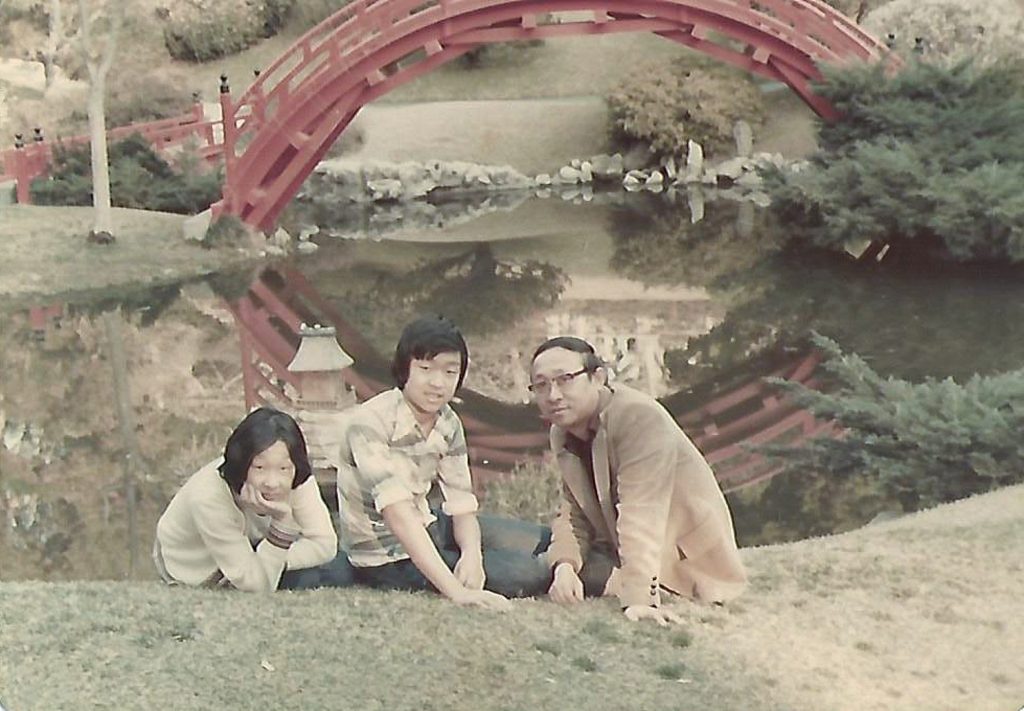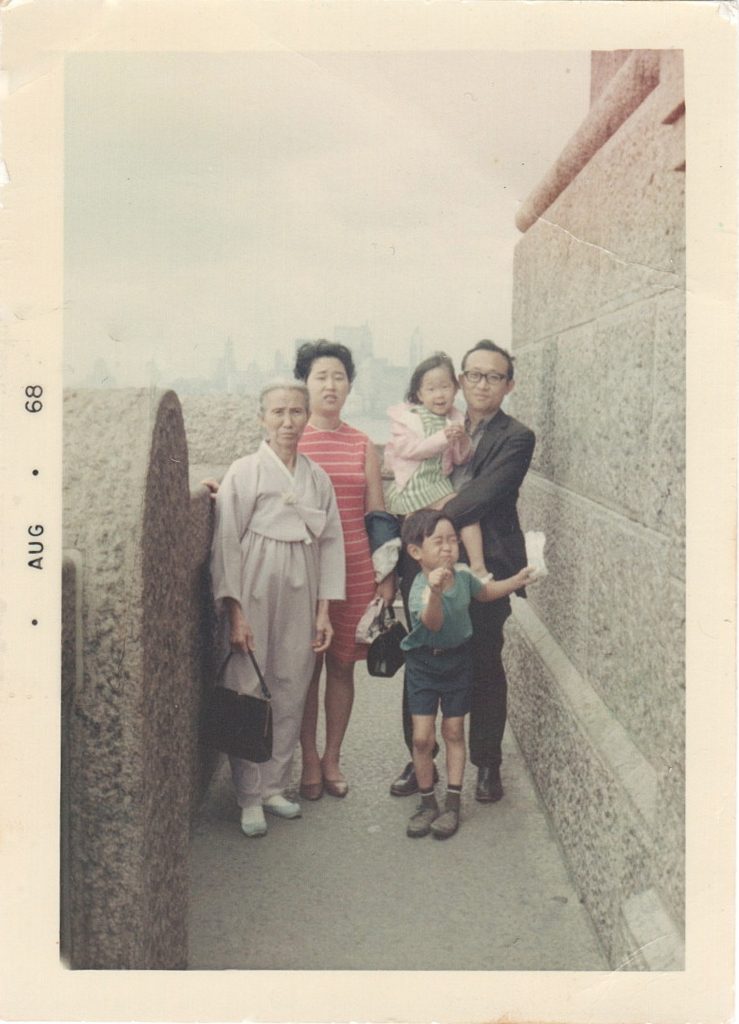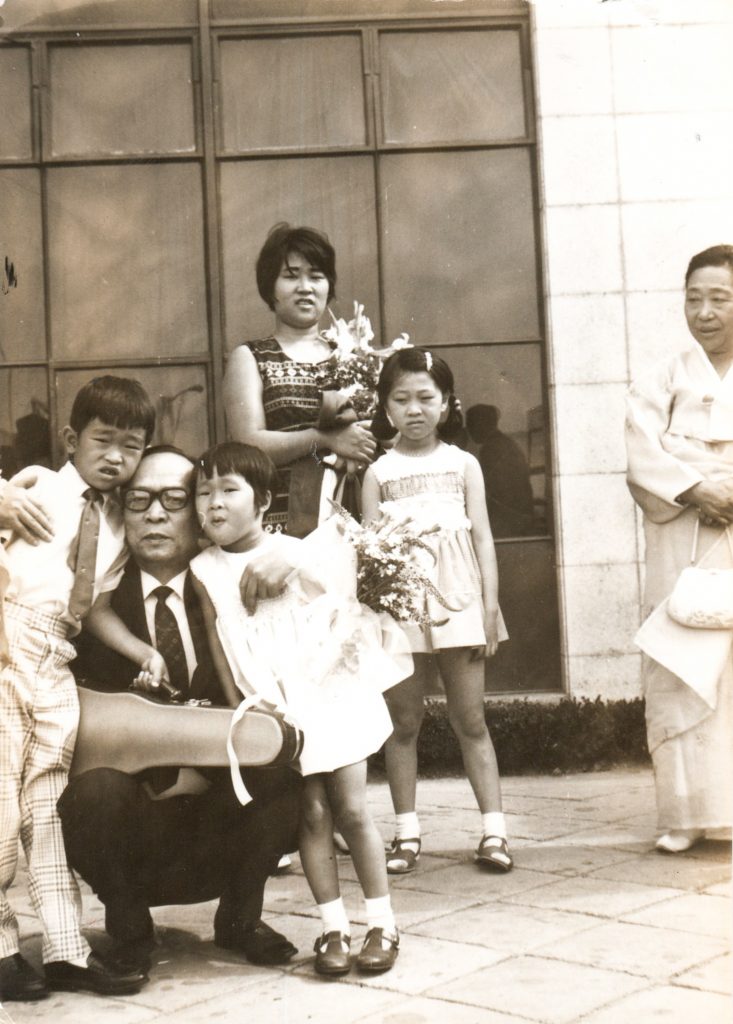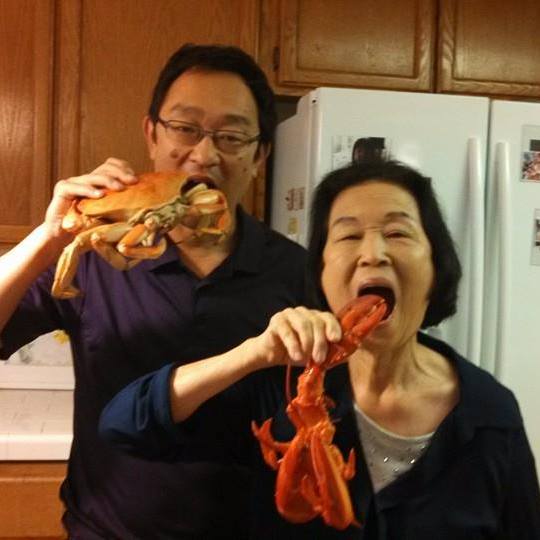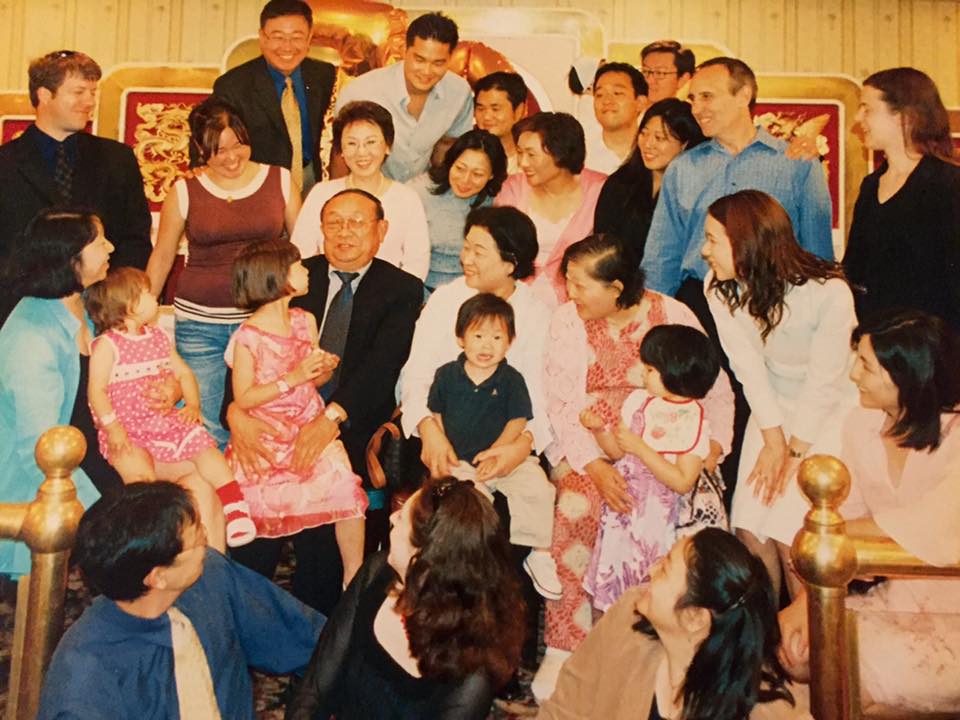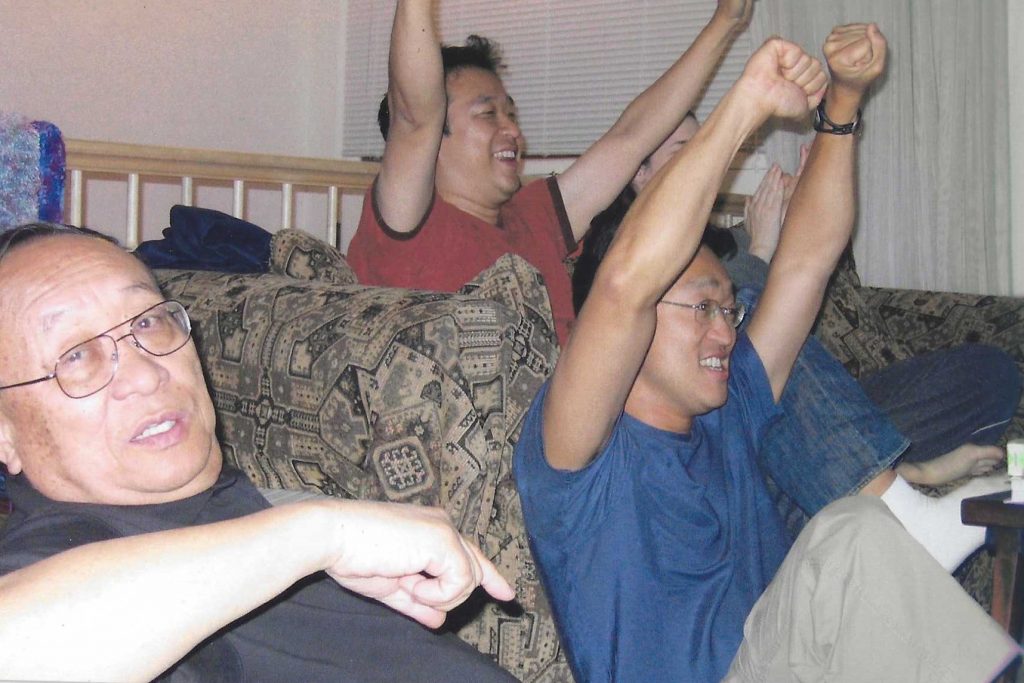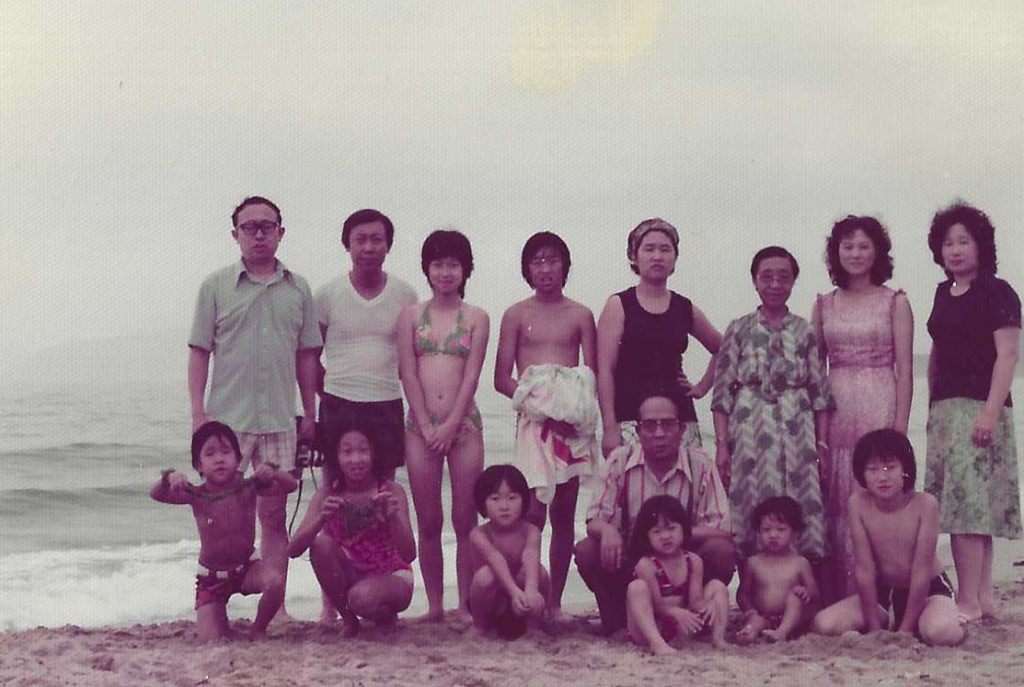David Jinwon Lim is the eldest son of Henry and Sunny.
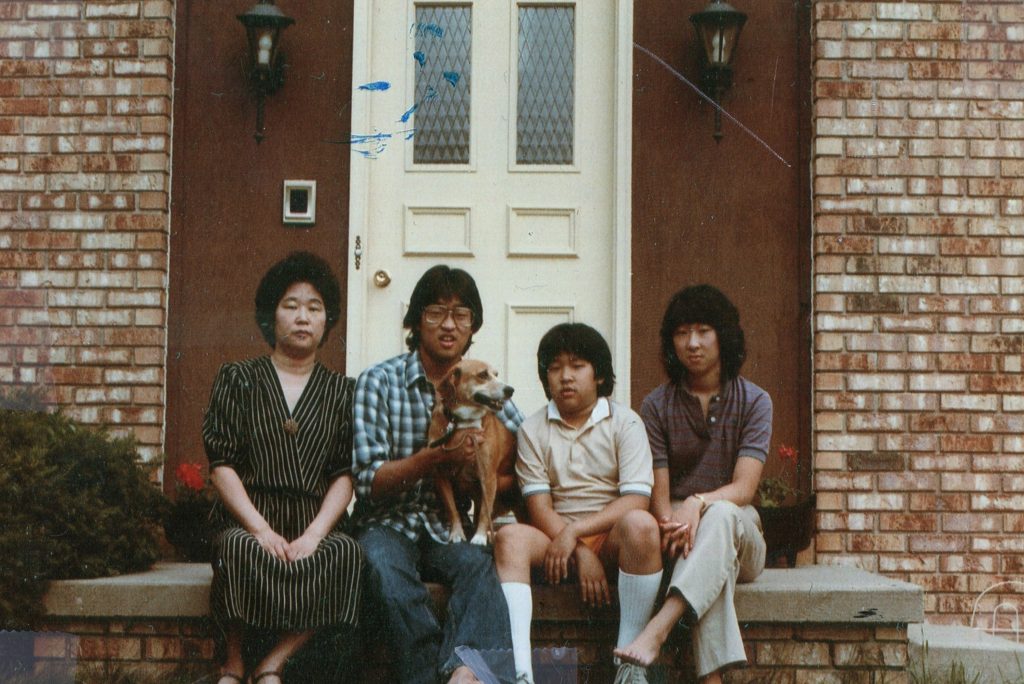
I want to tell you about the last two weeks of my parents’ life. It is a story about being keeping your family safe and it is a story about a miracle.
When I was young, I worshipped my Dad. When he went on business trips, I cried and cried. I hung on to his leg. I chased him as he drove off. I did not want to see him go. He made me feel safe. Like no one else. Thanks to my dad it was safe to ride a bike. It was safe to swim. It was safe to get pummeled by him in ping pong 21-0 every time.
I was an overly sensitive kid. My feelings got hurt a lot. Kids picked on me, made fun of me, beat me up. I would run crying to my room. My dad would spend time soothing me, patting my stomach, singing to me. He made me feel safe. Always. When I was hurt or scared, he knew exactly what to do to help me feel safe. Many years later as a grandfather, I watched him stroke Natalie’s arm when she was 5 or 6. And that helped Natalie feel safe
One late evening, some kids were throwing corn cobs and rocks at our window. My dad grabbed a very realistic toy shot gun he got me for Christmas, chased them down the block. I ran out the door after him. When I caught up, the two kids were laying on the ground begging forgiveness with my dad pointing the toy shot gun at their heads. To protect family and loved ones. To help them keep safe. To comfort and soothe his loved ones.
Many years later, when I was going through my divorce, he was like a slingshot from the past. He visited me, fed me, said comforting words, watched a Super Bowl with me. He did his best to help me feel safe.
When my dad was first hospitalized, he was doing much better than my mom. During our first zoom meeting with family, Dad, and the doctors, we discussed something called DNR or Do Not Resuscitate or Do not be put on life support. My mother was not on the call, but she was adamant that she wanted to be on life support no matter what. That was not surprising. But then my dad agreed. That was surprising. He was a man of science, probability. Then it was his turn to explain why.
And there it was, again. To protect family. To keep people safe.
He burst into tears. And on his face was a pain and anguish so deep, so raw, a cavernous pain that could have swallowed the entire room. “I did not protect your mother, I did not get her here earlier, when I should have,” he said awash in tears and barely able to speak from emotion. “I have to live, I have to so that your mom can, I didn’t protect her, and I should have.”
But as the doctor’s explained mom’s condition, the science, the medical facts, my dad became sullen, distant — he retracted from the conversation. His science mind understood. It was too late for mom. It was too late to protect her. To keep her safe. I saw him each day. He was as sullen as he was on that phone call. Occasionally he got energy and kept the nurses and the docs entertained with his knowledge of medical science and biochemistry. And while I was visiting mom, she would always give me the same messages to pass to Dad — as they were in different hospitals. “You have to eat. You cannot give up. I love you. You have done nothing wrong, nothing. You are a remarkable man. You must eat. I love you. Don’t give up.”
His health was improving to the point where discharge planning began. That was on a Tuesday morning. Before I left for Seattle, he said, “you are a good son.” Those would be the last words I would hear from him. By Wednesday morning, he was on life support. His heart, his lungs, his kidneys, were all failing.
My father lived his life with his heart. His academic passions. Everything. But sacred to him was built in his DNA. In that moment, on that call with family and doctors, he realized how much he loved my mom. He had kept his family safe, me Carol. Mike, his granddaughters for so many years. But when it came down to it, when he realized he could not keep the most important person in his life safe, he knew his purpose here on this planet was complete.
While I looked up to my Dad and he made me feel safe at various times in my life, I felt more at ease and more comfortable with my mom. I could spend more time in a room with my mom than my dad. I love them both, do not get me wrong. But for me it was easier to be in the presence of my mom. I think at times, it was difficult for her to be the kind of mom everyone thought she should be.
Over the years, though, I started to get a picture of who my mom was as a person. Passionately creative—in music, yes. But she was also an artist and a poet. She was more talented as a poet and writer than in music, but she would probably not admit that. She was also a track star. And while my dad taught me how to swim, throw a football, and play ping pong, mom taught me how to tie my shoes and shoot a basketball.
My mother was stubborn, persistent, strong-headed and like my dad, fiercely loyal. Her passions governed her. And then I started to realize that my mom feels emotions so intensely that she felt like she had to harness them, keep them under wrap. When she felt anger, she felt it 10 times more than the angriest person. When she felt sad, she felt it 10 times more than the saddest person. When she felt joy, well, she let that one go — and everyone has at least one Sunny Lim story where she could not stop laughing and could easily laugh for 30 straight minutes OR how she obsessed overs something she thought was funny or joyous and could not let it go.
Over the years, I realized that arguing with her, trying to get her to change her point, trying to set boundaries, was nearly impossible. She had the power and might of an infinity stone — radiant life giving and at times uncontainable. I learned how to talk to her, how to answer her, how to respond to her. I learned what was taboo and what was not. At times, I wondered why this “superficial relationship” never bothered me, in fact… I enjoyed the relationship. It was superficial. And yes, I spent a lot of time bending the truth.
But I did not know why I was okay with it.
I would drive back and forth from each hospital to see my parents. One in Anaheim. One in Irvine. On the third day I was with my mother, she said, “I’m glad you are here.” I said, “I’m glad to, but why are you glad I am here?” My mother looked me in the eye and said, “because you make me feel safe.”
In that moment, everything became clear. Where my dad could not make my mom feel safe, physically, I HAD to emotionally. In that moment, I knew exactly what to say, how to be, how to care for her, in the exact manner that she would feel safe. I was able to help her to agree to a Do Not Resuscitate. I told her that if she wanted the miracle of God, that if God granted that miracle, she would not be able to use that miracle if her body was hooked up to all these machines. She said, okay. My mom and dad befriended a famous scholar in Korea. He took a liking to both. They respected him and trusted him completely. His name is Professor Kim. Then she said, “did Professor Kim say God said it was okay to die?” I said, “yes, both God and Professor Kim said it was okay for you to die.”
I said what I had to say to help keep her safe.
The nurses said that when I was not around, she became less energetic, did not eat, and wanted only to sleep and she seemed sad and scared When I did see her, she ate, she talked, she sat up. She told me repeatedly, “you make me feel safe.”
Mom bombarded me with question after question about the house, her violins, the landscaper, bank accounts, jewelry. And I countered with answers, some answers did not even make sense. But I knew what she needed to hear to keep safe.
It turns out that the superficial relationship I thought I had with her was practice for her last days.
My mom did not suffer towards the end. She ate, never gave up, never complained, talked about death as if it were something to do. Only once did she allow herself to feel angry, slighted, and slightly forsaken. She said, “Didn’t Donald Trump get COVID? Why does he get to survive it and not me?”
At the end, she asked for more and more medicine to help her sleep. Each time I was there, she would grow weary more quickly and ask for more. One day, she said, “promise not to leave here until I go to sleep.” I said “yes, I will sit here until you go to sleep.”
It took her awhile to get to sleep. When she did, I went back to my hotel. Several hours later, her life signs began to fade quickly. The late shift nurse called me and told me that she did not have much time left. I rushed back to the hospital. My mom passed in her sleep. Just how I left her.
We were all praying for miracles. The miracle of life. But what I realized is my mom did get a miracle. My mom has always wanted to die in her sleep. And to feel emotionally safe. She did not want her passing to be a big deal to her or anyone else. She wanted to be with loved ones and not have to see them suffer. And she wanted to feel safe at the very end.
The miracle is this. The circumstances, situations, coincidence of my entire life … the decisions I have made, not made, the things I have done, and have not done, decade’s worth — all led to this. My mom was able to have a family member visit her in COVID ICU, when family members were not allowed to visit, I was … My mom was able to have a family member who practiced keeping her feel safe for so many years, to be with her, at the end. My mom was able to die exactly how she wanted to —while in the throes of a pandemic.
But all of that was not possible, had it not been for my dad—because one hour before my mom told me I kept her safe, it was my dad, who got through to me—that his life was all about keeping his loved ones safe. And it was the most important thing to him. And in that moment, it became especially important to me. One hour before my mom said, “you help me feel safe.”
It turns out that the miracles asked for and the prayers sent to God, in those two weeks, were already in the making, 50 years ago in the past.
